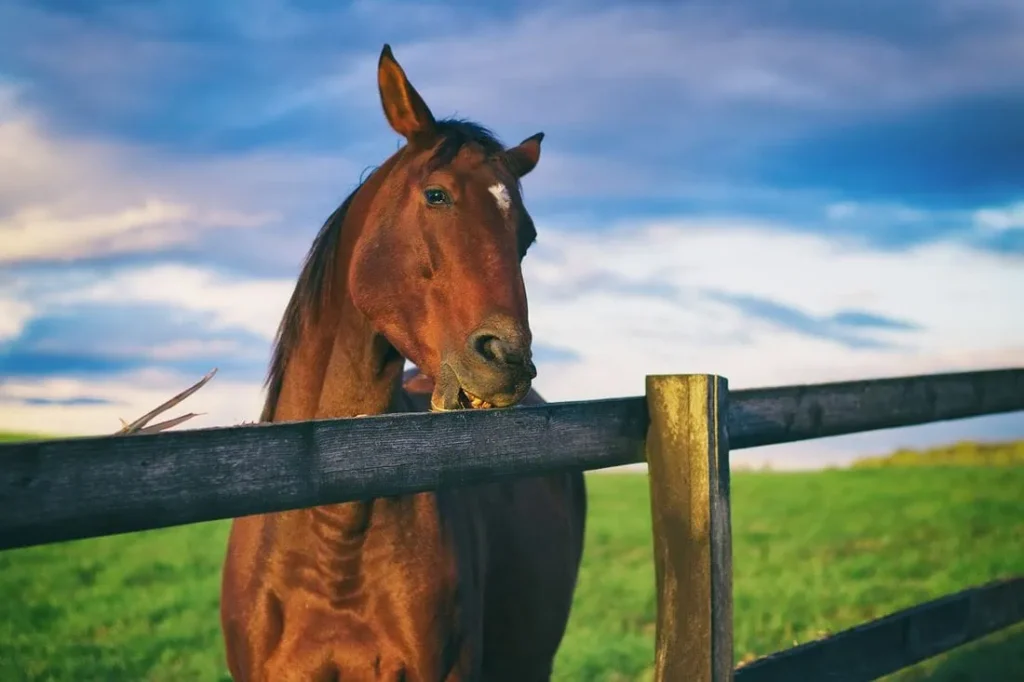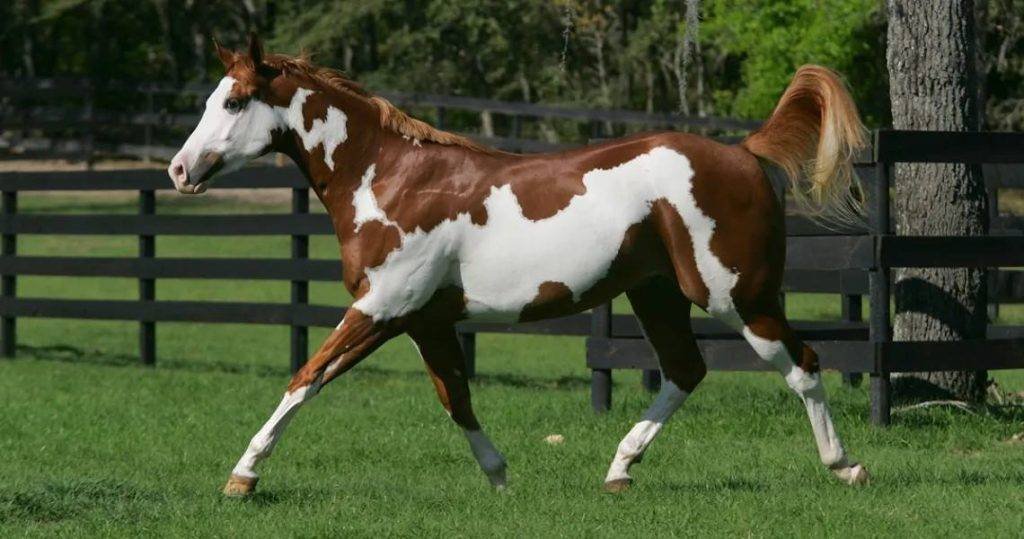Young horses are curious by nature, and they often explore their environment using their mouths.
While it’s common for horses to chew on things, it can become a problem when they start chewing on wood, such as fence posts, barn doors, or stalls. If your young horse is exhibiting this behavior, you might wonder why they do it and how to stop it. In this article, we’ll explore the causes of wood chewing in young horses and share practical tips on how to prevent it.
Why Do Young Horses Chew Wood?
Wood chewing, also known as cribbing or wood gnawing, is a behavior that many young horses develop, particularly during their early years. While some horses may outgrow this habit, others continue to chew on wood throughout their lives. There are several reasons why young horses may engage in this behavior:
1. Teething and Mouth Discomfort
One of the most common reasons young horses chew on wood is due to the discomfort of teething. Just like human babies, young horses go through a process of cutting and losing their baby teeth as they grow. This can cause gum irritation, and chewing on objects like wood helps soothe their sore mouths. This is particularly common in foals and yearlings.
2. Boredom and Lack of Stimulation
Young horses, like all animals, need mental and physical stimulation. Without enough things to do, they may resort to chewing on wood as a way to pass the time. This is especially true for horses that are kept in stalls or have limited access to pasture. If a young horse doesn’t have access to adequate toys, space, or other distractions, they may start chewing on fences, walls, or even their own stalls out of sheer boredom.
3. Nutritional Deficiencies
Sometimes, wood chewing can be linked to nutritional deficiencies. Horses that are not getting enough of certain vitamins and minerals, especially fiber, may chew on wood to try to satisfy their cravings for something they’re lacking. A diet that is too low in roughage, such as hay, can lead to gastrointestinal discomfort, which may drive a horse to chew on wood in search of more fiber or to relieve an upset stomach.
4. Stress and Anxiety
Like many animals, horses can develop certain behaviors due to stress or anxiety. Young horses that are separated from their mothers, introduced to new environments, or facing other forms of stress may begin chewing on wood as a coping mechanism. Cribbing or wood chewing can be a self-soothing behavior that helps them deal with anxiety or nervousness.
5. Learned Behavior
In some cases, young horses may begin chewing on wood simply because they’ve learned it from other horses. If there are older horses in the barn or pasture that chew on wood, the young horses may mimic this behavior. This is especially true if the older horse seems to gain some form of satisfaction from the activity, such as a release of tension or boredom.
How to Prevent Wood Chewing in Young Horses
While chewing wood is a common behavior, it can lead to damage to property, create health concerns, and potentially result in long-term habits that are difficult to break. Fortunately, there are several strategies to prevent this behavior.
1. Provide Plenty of Grazing Time
Horses are natural grazers, and they spend a significant portion of their time in the wild foraging for food. Allowing your young horse to graze as much as possible helps keep them occupied and satisfied. A diet that includes high-quality hay and access to fresh grass can reduce their urge to chew on wood, as they’re getting the roughage they need. If grazing isn’t possible all the time, provide hay in a slow feeder to mimic natural foraging behavior.
2. Offer Chew Toys or Alternatives
If your young horse is chewing on wood out of boredom, providing them with safe, appropriate alternatives can help redirect their chewing behavior. There are a variety of horse-safe toys and objects designed for chewing, such as rubber balls, large hanging chew toys, or branches from horse-friendly trees (like apple or willow). These alternatives can give them something to focus on other than your stable’s woodwork.
3. Ensure a Balanced Diet
A balanced diet plays a crucial role in keeping your horse healthy and satisfied. If your young horse is chewing wood due to nutritional deficiencies, it’s important to review their diet with a veterinarian or equine nutritionist. Make sure they are receiving enough vitamins and minerals, especially fiber. Adding fiber-rich foods, such as hay, or incorporating supplements into their diet, can help reduce the urge to chew on inappropriate objects.
4. Increase Physical and Mental Stimulation
To prevent boredom, increase your young horse’s physical and mental stimulation. Regular exercise, including turnout time in a safe, enclosed pasture, will help tire them out and reduce idle time. Additionally, you can work on training exercises that keep their minds engaged. Teaching your young horse new skills, whether it’s groundwork or basic riding commands, can help build a stronger bond with them while keeping their mind sharp.
5. Use Deterrents on Wood Surfaces
If you’ve already noticed that your young horse is chewing on wood, there are some deterrents you can apply to the wood surfaces. Commercial sprays, which are safe for horses but have a bitter or unpleasant taste, can help keep horses from chewing on specific areas. Be sure to use a product that is specifically designed for horses and safe for their health. Just be mindful that deterrents are often a short-term solution and should be used in combination with other strategies like better diet and mental stimulation.
6. Address Stress and Anxiety
If you suspect that your young horse is chewing due to stress or anxiety, it’s essential to address the underlying causes. Consider if there have been any changes in their environment or routine that could be contributing to their stress. Horses that are anxious may benefit from a calmer environment, gentle handling, and more socialization with other horses. In some cases, consulting a veterinarian or equine behaviorist can help to identify and manage anxiety-related issues.
7. Provide Proper Stabling
Make sure your young horse’s stable or living area is conducive to comfort and well-being. A well-ventilated, spacious stall with bedding and sufficient light can help reduce stress and prevent boredom. Inadequate or cramped living conditions can contribute to behaviors like wood chewing, so it’s important to create a comfortable and enriching environment for your horse.
Wood chewing is a common behavior in young horses, but it doesn’t have to be an ongoing problem. By understanding the causes of wood chewing and taking proactive steps, you can help prevent it and create a healthier, more enjoyable environment for both you and your horse. Remember, prevention is key! Whether it’s through proper diet, increased stimulation, or stress management, addressing the underlying causes of the behavior will make a world of difference.
If the behavior persists or if you’re unsure of the cause, always consult a veterinarian or equine behaviorist for additional advice and support. With the right approach, you can help your young horse grow into a well-behaved and content adult!




